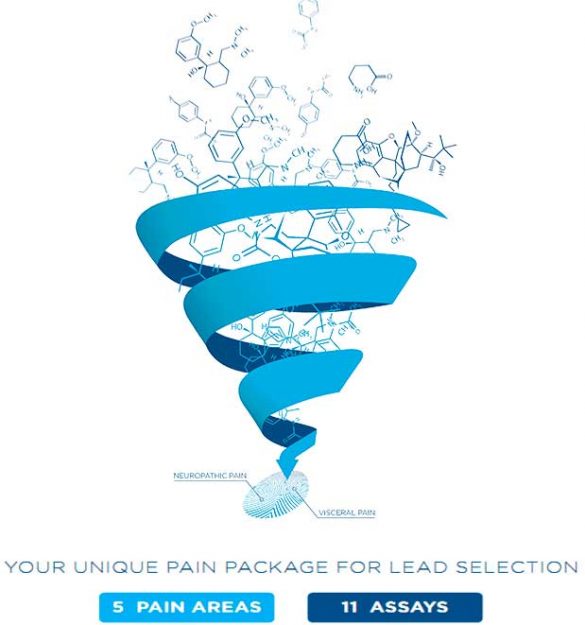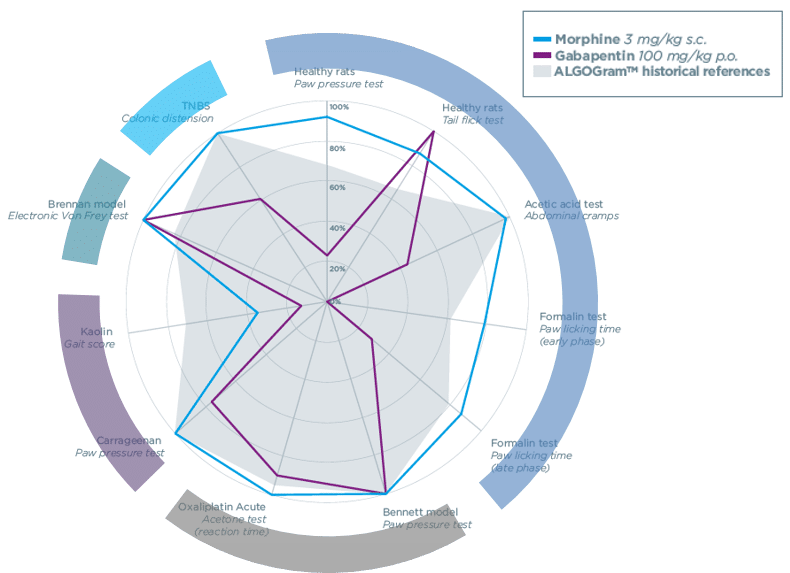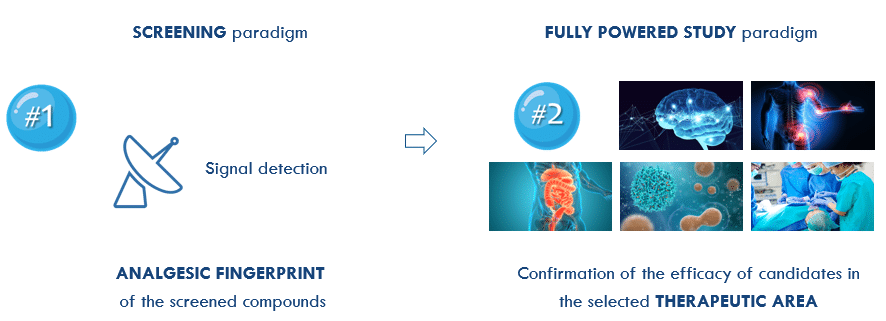
Get your analgesic fingerprint across five pain areas

When profiling lead compounds in your discovery programs, you should consider ALGOGramTM, a unique in vivo screening tool that provides a rapid and cost-effective method for simultaneously exploring analgesic activity across 10 fully validated pain models / tests in 5 different pain areas:
– Acute & tonic pain
– Inflammatory pain
– Neuropathic pain
– Postoperative pain
– Visceral pain
Information on behavioral toxicity is also provided using the modified Irwin grid.
The simple-to-view plots can provide valuable information regarding the next steps in the development process, whether your R&D programs target pain directly or they simply share features common to established pain mechanisms.
Since its inception, nearly 400 test articles have been profiled with ALGOGramTM.
Within only 3 weeks, ALGOGramTM provides a user-friendly pharmacological profile, an “analgesic fingerprint” that facilitates your crucial “GO / NO GO” decisions.
Utilize 18 Years of Data and AI to Create Standardized Efficacy Profiles for Novel Compounds
11 assays seamlessly orchestrated during a 2 week experimental phase!
- Small group size (n=4)
- Single time point
- Single dose
- Single administration
- Reliance on historical database for vehicle and positive control



PROOF OF EFFICACY OF YOUR DRUG IN JUST 2 STEPS!
1- ALGOGram™ gives you the analgesic profile of your test articles by detecting efficacy in a given pain area, guiding you in your “GO / NO GO” decisions.
2- The analgesic fingerprint provided by ALGOGram™ can be confirmed and fine-tuned in fully powered studies as a follow-up to the initial screening step.



